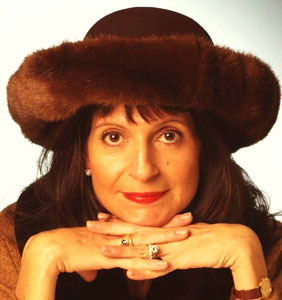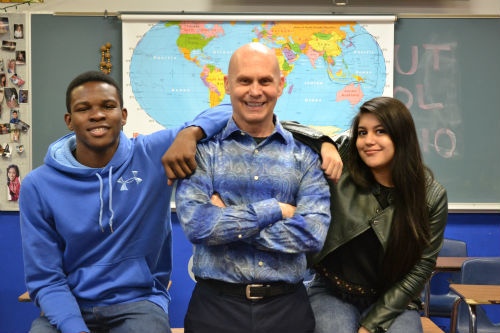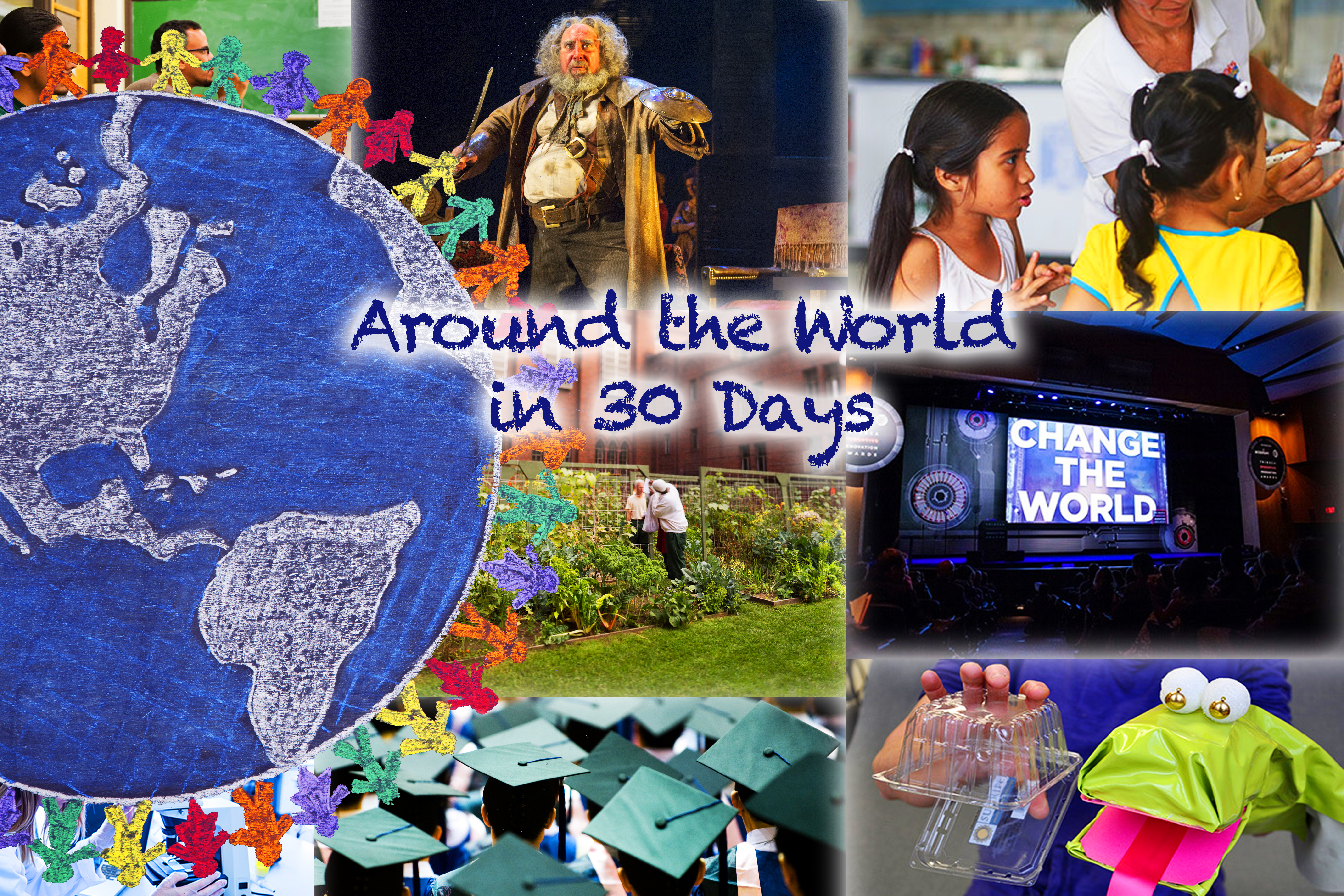
Este mês, I continued my conversations with leaders from around the world on today’s pressing issues in education – from the challenges of graduates seeking jobs to the psychological burden of bullying, from the Japanese academic community’s protests for peace to the International Baccalaureate’s commitment to multiculturalism. Entrementes, locally in New York, I learned how BAM (Brooklyn Academy of Music) and other Arts organizations are helping to complete the comprehensive Cultural Plan for New York City, which aspires to bring arts education to every school in the city. BAM is using new technology to bring their work into classrooms worldwide, making their platform accessible to young audiences and students anywhere at any time.
A Pesquisa Global para a Educação de core mission is to promote sustainable change through global discourse, and so I couldn’t be happier than to talk with George Rupp (former President of Rice University, Universidade de Columbia, e International Rescue Committee) about his new endeavor as Chair of the International Baccalaureate’s Board of Governors. This program, offered in 146 países, is among our favorites as it gives students the perspectives of other cultures, societies and countries through its rigorous criteria for graduation: os alunos devem levar seis cursos interdisciplinares, escrever um artigo de investigação, e serviço comunitário completo.
In Rupp’s new position, I learned that he’s working towards fostering multicultural competence and building more relations with underrepresented regions of the world. His goals are ones that all institutions should aim for. As he says, “Educação que é academicamente rigoroso, deliberadamente multi-cultural, and concerned with developing personal values that include a commitment to community service, is an invaluable resource for any and all of us.”
I received many emails in the past few months from scholars appealing Japan’s attempt to lift the constitutional ban on collective self-defense (CSD). If CSD is lifted, this could reignite participation in war for a country that has had its fill of battle. As I looked more into it, I was happy to support this cause, which grew to include over 9000 estudiosos. I talked to Dr. Manabu Sato (Professor Emérito, Universidade de Tóquio), who co-led the initiative called Association of Scholars Opposed to the Security Related Bills. Sato calls the bill “not simply unconstitutional but also an attack on the key principles of constitutionalism and the rule of law,” adding that we also need to “challenge the hypocrisy exhibited by many Western governments, incluindo os EUA, que geralmente bem-vindos a tentativa do governo Abe para levantar a proibição de CSD, under the name of ‘pro-active contribution to peace’ through which Japan plays a bigger role in defending the ‘rule of law’ no contexto de conflitos marítimas e territoriais da Ásia.”
In July, I asked our global teacher bloggers about a pertinent and poignant issue: assédio moral. Dr. Tracey C. Burns, a Project Leader at the OECD in Paris and a global expert on bullying, confirms that “a huge amount of political attention is being paid to the issue.” Statistics repeatedly show the prevalence of bullying in American schools, and new research suggests that social media has brought school bullying into the home. Many bold recommendations were offered from teachers, all of whom brought their personal experience to tackling this difficult issue. Guest blogger James Alan Sturtevant recommended reaching out to bullies – noting that “harsh consequences don’t always work, pode fazer valentões pior, e, por vezes evocam retribuição para as vítimas infelizes.” And Pauline Hawkins cautioned that anti-bullying programs in schools will have little influence on students if the adults in their lives are not teaching and modeling respect.” We also heard from Australian expert Lisa Currie (Criador do Projeto Kindness Ripple), who recommended the practice of fostering kindness in schools and offered many real world examples of how to do this.
While many think of New York and California as the go-to places for post-college jobs, a recent report has shown that actually Massachusetts, Delaware, e Washington têm a maioria dos postos de trabalho por graduado da faculdade. EU got to talk this month with Anthony P. Carnaval, the report’s lead author and the director of Georgetown University’s Center on Education and the Workforce. For parents and students anxious about the meagerness of today’s job market, Carnevale has given a report, which as he says, tem “the ability to connect real people with real jobs in real time.” His report has remarkable findings that will be a boon to anyone who wants to know about the reality of post-college life. One of many insights this report provides is that “desenvolvedores de software, enfermeiros, and managers are among the most in-demand professionals in every state.”


Junte-se a mim e líderes de renome mundial, incluindo Sir Michael Barber (Reino Unido), Dr. Michael Bloco (EUA), Dr. Leon Botstein (EUA), Professor Clay Christensen (EUA), Dr. Linda, Darling-Hammond (EUA), Dr. MadhavChavan (Índia), Professor Michael Fullan (Canadá), Professor Howard Gardner (EUA), Professor Andy Hargreaves (EUA), Professor Yvonne Hellman (Holanda), Professor Kristin Helstad (Noruega), Jean Hendrickson (EUA), Professor Rose Hipkins (Nova Zelândia), Professor Cornelia Hoogland (Canadá), Honrosa Jeff Johnson (Canadá), Senhora. Chantal Kaufmann (Bélgica), Dr. EijaKauppinen (Finlândia), Secretário TapioKosunen Estado (Finlândia), Professor Dominique Lafontaine (Bélgica), Professor Hugh Lauder (Reino Unido), Senhor Ken Macdonald (Reino Unido), Professor Geoff Mestres (Austrália), Professor Barry McGaw (Austrália), Shiv Nadar (Índia), Professor R. Natarajan (Índia), Dr. PAK NG (Cingapura), Dr. Denise Papa (US), Sridhar Rajagopalan (Índia), Dr. Diane Ravitch (EUA), Richard Wilson Riley (EUA), Sir Ken Robinson (Reino Unido), Professor Pasi Sahlberg (Finlândia), Professor Manabu Sato (Japão), Andreas Schleicher (PISA, OCDE), Dr. Anthony Seldon (Reino Unido), Dr. David Shaffer (EUA), Dr. Kirsten Immersive Are (Noruega), Chanceler Stephen Spahn (EUA), Yves Theze (LyceeFrancais EUA), Professor Charles Ungerleider (Canadá), Professor Tony Wagner (EUA), Sir David Watson (Reino Unido), Professor Dylan Wiliam (Reino Unido), Dr. Mark Wormald (Reino Unido), Professor Theo Wubbels (Holanda), Professor Michael Young (Reino Unido), e Professor Minxuan Zhang (China) como eles exploram as grandes questões da educação imagem que todas as nações enfrentam hoje.
A Pesquisa Global para Educação Comunitária Página
C. M. Rubin é o autor de duas séries on-line lido pelo qual ela recebeu uma 2011 Upton Sinclair prêmio, “A Pesquisa Global para a Educação” e “Como vamos Leia?” Ela também é autora de três livros mais vendidos, Incluindo The Real Alice no País das Maravilhas, é o editor de CMRubinWorld, e é um Disruptor Fundação Fellow.
Siga C. M. Rubin no Twitter: www.twitter.com/@cmrubinworld





Comentários Recentes